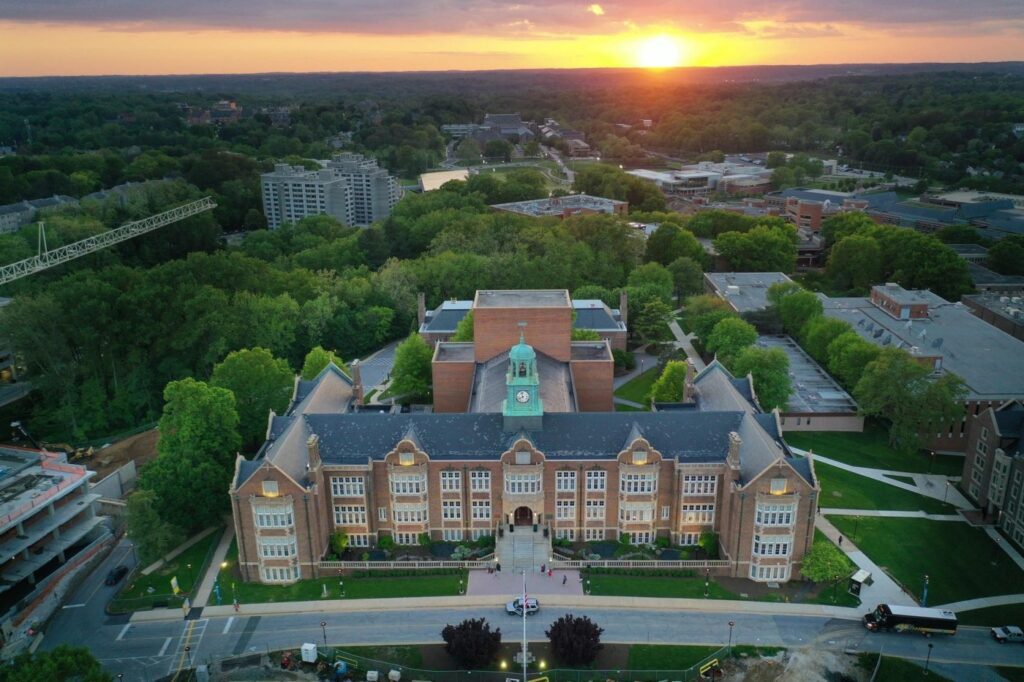After some Maryland universities accused of duplicating HBCU degrees, legislators provide policy recommendations
- January 23, 2024

A legislative work group assigned to evaluate policies for approving or denying college degree programs offered a list of recommendations for the Maryland Higher Education Commission, several of which focused on preventing program duplication.
The Maryland Program Approval Process Workgroup, led by Democratic state Sen. Nancy King and state Rep. Stephanie Smith, was created last year to improve the commission’s program approval process and make it more transparent. The work group’s recommendations tightened regulations for reviewing new academic programs that are similar to ones that already exist at competing universities.
Smith, at a Legislative Black Caucus news conference Thursday, said she’s also working on a bill based on the recommendations that would try to ensure some programs at historically Black colleges and universities are not duplicated at non-HBCUs.
“Without adoption through the formal regulatory process, the program approval process appears to lack uniformity, consistency, and transparency in implementation,” the work group wrote in its report.
Members include legislators, representatives from various Maryland universities and the commission’s acting secretary. After meeting over five months, the work group voted Friday to approve the 23 recommendations.
“The Maryland Higher Education Commission is thankful to be a part of this historic endeavor, which will make the academic program review process a well-defined, impartial, transparent, and efficient process moving forward,” Sanjay Rai, the higher education commission’s acting secretary said in a statement. “I am grateful to Senate Chair Nancy King and House Chair Stephanie Smith for their unwavering commitment to this effort.”
The group recommended that the General Assembly add an advisory committee within the higher education commission to guide program review and approvals. Another recommendation outlined steps for institutions to object to programs they think were duplicated.
To improve transparency, the work group suggested the commission make public its discussions, deliberations and votes on appeals of program approval decisions. Currently, those discussions and votes in an appeal process are closed to the public.
The commission, which oversees all the state’s colleges and universities, made controversial decisions this summer for both approving and denying proposed doctoral programs.
In June, Morgan State University officials objected to Towson University’s request to start a doctoral program in business analytics that they said duplicated a program taught at the historically Black university. Towson’s request was originally denied by a commission employee for being “unreasonably duplicative” of Morgan State’s doctoral program.
The commission’s board overruled that decision in a 4-3 vote that allowed Towson to proceed.
The Maryland attorney general’s office was asked for guidance and determined that the commission’s decision was moot because the vote needed majority approval from the 12-person board. Towson University, located four miles from Morgan State, withdrew its request.
A Towson University spokesperson said the university is waiting for the commission to revise its review process and then might resubmit it.
In 2021, the state agreed to a settlement of $577 million with its four HBCUs as a result of allowing nearby predominantly white institutions to duplicate degree programs and putting the HBCUs at a disadvantage when competing for students and resources. A law that settled the dispute also mandated the state to review the higher education commission’s academic program approval process.
In September, the commission denied the creation of a physical therapy doctoral program at the Johns Hopkins University and Stevenson University because of their similarity to existing programs at the University of Maryland Eastern Shore, a historically Black university, and the University of Maryland, Baltimore.
A Hopkins spokesperson said in September the denial was one of several recent decisions by the commission that “raised concerns over its role” and welcomed the legislative work group’s review.
The commission received 143 proposals for new programs in 2023, 10 of which received an objection. Seven objections were resolved without needing a hearing, and three progressed to a hearing.
Sign Up For Our
Newsletter
Each day, we honor and remember those who have recently passed away.
Most Viewed
More
- Article Obituaries
- Celebrities
- Celebrity News
- Local
- News
- News & Advice
- NFL
- NHL
- Northside
- Norwin
- Obituaries
- Obituary
- Penn Hills
- Pirates
- Pitt
- Pittsburgh
- Plum
- Politics Election
- Sports
- Steelers
- Theater Arts
- Top Stories
- Travel
- Tribune Review Obituaries
- US-World
- Valley News Dispatch
- West End
- Westmoreland
- World